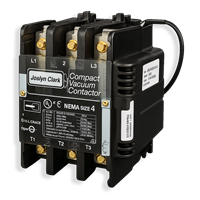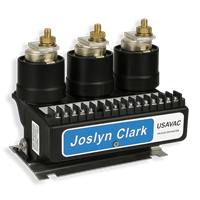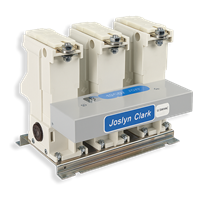Vacuum Contactors in Cement Industry Applications
In cement applications, vacuum contactors are used as a primary means of controlling motors. These contactors are designed to withstand the harsh conditions typically found in cement plants, including extreme temperatures, dust, and moisture.
Most common applications for contactors in the Cement industry include:
- Conveyor motors
- Rock Crushers
- Motors
- Operating Equipment
Vacuum contactors consist of a vacuum interrupter housed within a sealed enclosure. When the contactor is energized, the vacuum interrupter closes, allowing current to flow through the motor. When the contactor is de-energized, the vacuum interrupter opens, cutting off the current to the motor.
One of the main advantages of vacuum contactors is their ability to handle high levels of current. This makes them ideal for controlling large motors commonly used in cement applications. Additionally, vacuum contactors have a longer lifespan than other types of contactors, meaning they require less frequent maintenance and replacement.
Overall, vacuum contactors are a reliable and efficient means of controlling motors in cement applications, helping to ensure the smooth and safe operation of machinery in this challenging environment.
CV Series Compact Vacuum Contactor
Voltage: Up to 1.5kV | Amperage 200,400,600 max | <1A Chopping Current | Auxiliary Contacts | Opening Time 120ms | Closing Time 20-40msLearn more »
VC Series Low & Medium Voltage Vacuum Contactor
Voltage: Up to 3.6kV | Amperage 600 max | <1A Chopping Current | Auxiliary Contacts | Opening Time 90ms | Closing Time 17ms
Learn more »
MVC Series Medium Voltage Vacuum Contactor
Voltage: Up to 7.2kV | Amperage 600 max | <1A Chopping Current | Auxiliary Contacts | Opening Time 90ms | Closing Time 40msLearn more »




